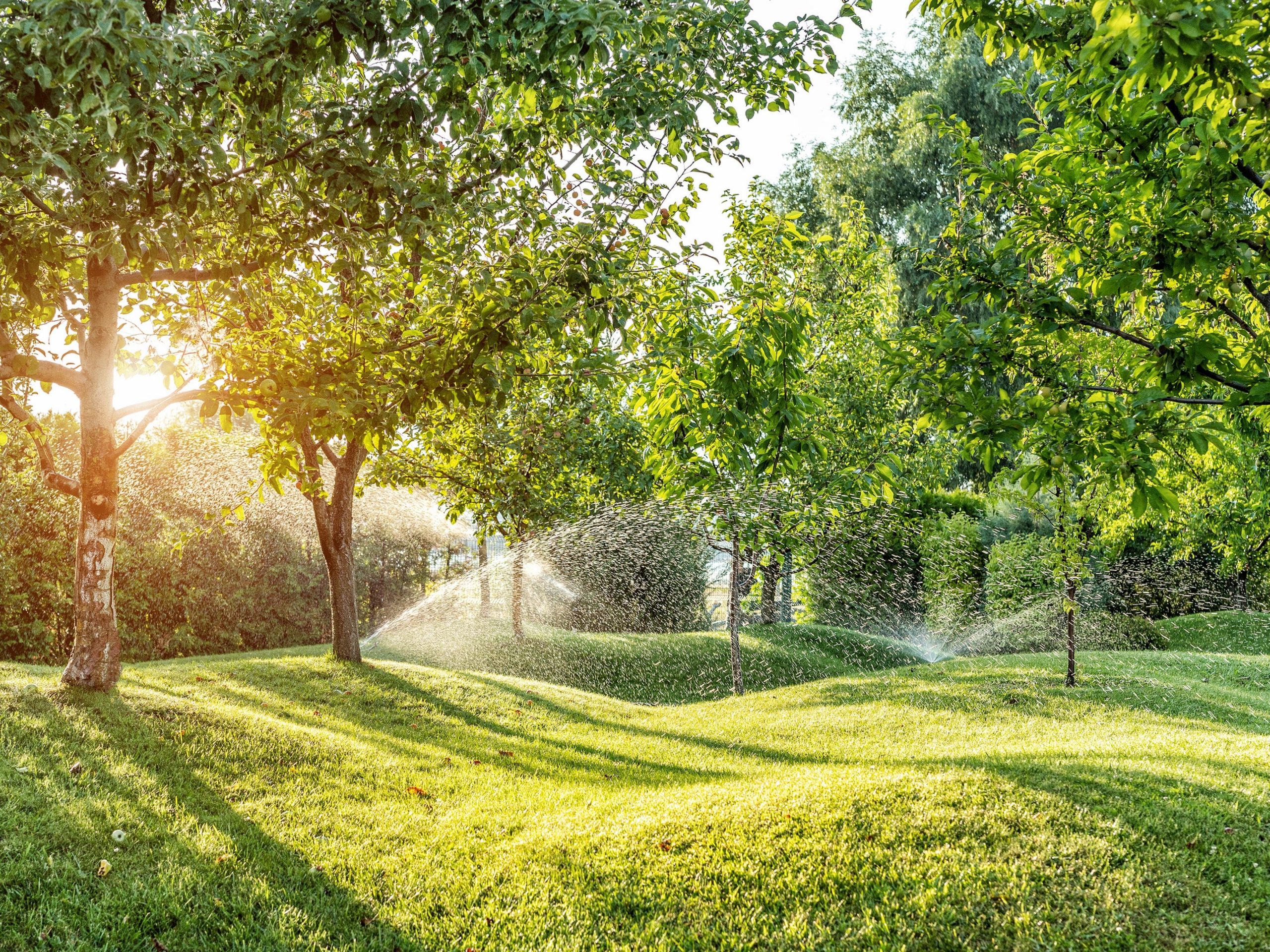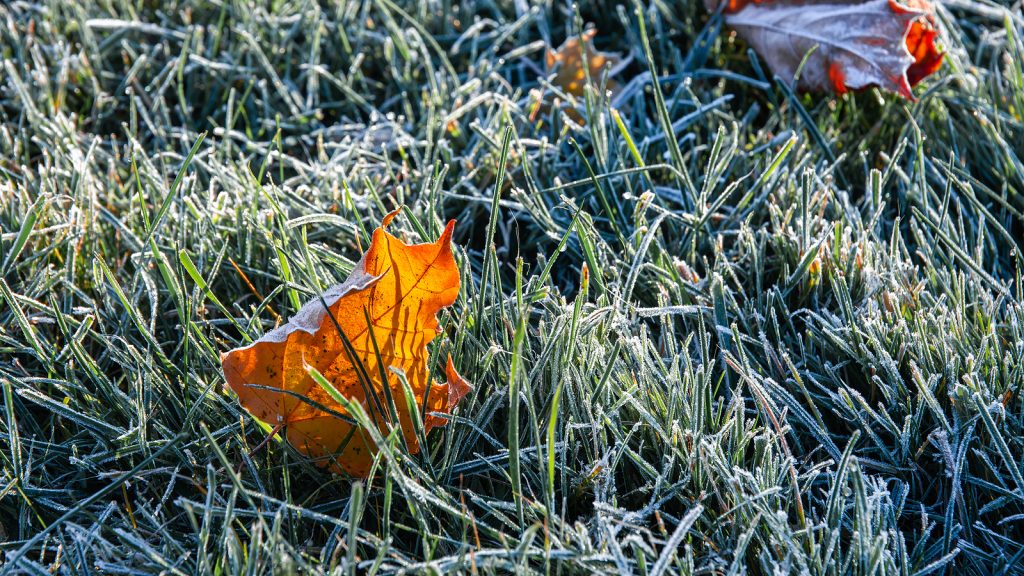
The Basics of Winterizing Sprinklers
If Mother Nature had a catchphrase, it would probably be something like, “I do what I want.” That’s why it’s difficult to make absolute timelines for things like winterizing sprinklers. The weather patterns change every year, so your irrigation schedule must be managed differently depending on the needs of that year.
Fall sprinkler care can sometimes seem like a guessing game, but there’s no need to panic. While you should take the time to winterize your sprinkler system, there’s no need to do it the second the temperatures drop. You’ve got time, and we’ll help you know when and how to get the job done properly, so you don’t end up with costly repair bills or an unhealthy lawn come springtime.
Will My Sprinklers Freeze And Crack If I Don’t Winterize?
As the weather gets colder, you’ve likely asked yourself, “Do I need to winterize my sprinklers?” The short answer is, yes. Winterizing sprinklers is an important part of maintaining your system. But an equally important part is knowing when to winterize the sprinkler system.
There’s a common misconception that sprinklers will freeze when the temperature drops below freezing. That’s not actually true. It takes several weeks of consistently cold weather for the ground to freeze deep enough to freeze your pipes. We’re talking weeks of temps below 36 degrees.
There’s another aspect of winterizing that makes knowing when to winterize sprinklers tricky. That is, your plants, including your trees and shrubs, need water even when it’s cold. In fact, you should still water them every three weeks during the winter, unless you have an inch of rain or 12 inches of snow. The key then is finding that sweet spot of winterizing sprinklers before they freeze, but not so soon that you kill your plants and deprive them of the water they need.
A good place to start your fall sprinkler care is by changing your sprinkler timer. You should either turn it off entirely and run the system manually or change it so the sprinklers only operate during the warmest part of the day. But, if you’re still stressed about the possibility of your sprinkler system freezing, go ahead and shut it off. You can do this by closing your stop and waste. You can then blow out your system at a later time. When you shut off your system, don’t forget to remove your reduced pressure zone (aka RPZ) backflow preventer to keep it from freezing and bursting.

Common Winterization Mistakes To Avoid In Utah
1. Winterizing Too Late In The Season
Winterize your irrigation system well before the first frost–don’t wait until you see frost in the forecast for the upcoming week. If your system freezes with water still inside, it will cause significant damage to your water lines.
2. Not Closing Valves Correctly
When you shut off your water supply, shut off the valve that specifically feeds your sprinkler system as well as the water mainline that feeds into your home.
3. Using the Wrong Air Pressure
If you use a compressor to blow air through the irrigation lines to force the water out, don’t use too much pressure as this will damage the line. Find the gallon-per-minute (GPM) of each sprinkler head, and then divide the total GPM of each zone by 7.5.
Tools and Equipment for Sprinkler Winterization in Utah
- A simple sprinkler adapter for blow-out
- 4-6 gallon air compressor
- A hose long enough to reach from the sprinkler control valve to the compressor
How To Winterize Sprinklers in Utah
Utah’s weather is unpredictable from year to year. The timing for winterizing your irrigation system will change depending on how long summer lasts or how soon winter comes. You’ll want to keep an eye on long-term weather forecasts and err on the side of winterizing sooner rather than later.
To winterize all irrigation systems, shut down the system at the “stop-and-waste valve” to release pressure in the pipes and drain the water from the pipes. The stop-and-waste valve is usually located on the service line between the house and the water meter.
Some systems have drain valves that need to be opened to drain the irrigation system. However, other systems require a blow-out using compressed air. If the latter is the case, you’ll want to consult with a professional service provider.
If your system is automated and has an electric controller, you’ll need to set it to the “off” position before winter settles in.
DIY Sprinkler Winterizing VS Hiring A Professional
Should you attempt winterizing sprinklers yourself, or should you hire a professional? Well, that depends. While it’s not overly difficult to winterize a sprinkler system, it is important that it be done correctly. There’s more to it than just turning the system off. If you are confident you know all the steps to winterize your system, then there’s no reason why you shouldn’t do it yourself. However, if you’re not sure what all it entails, then you’re probably better off leaving it to the professionals to handle.
When you use professionals, like Big Rock Landscaping, for winterizing sprinklers, you can rest easy knowing the job is done right. Having a professional do the winter maintenance on your sprinkler system ensures it is done right, and that no steps were missed in the process. Plus, if Big Rock installed your sprinkler system, we offer a lifetime warranty on it, as long as we winterize it and turn it back on in the spring.
Big Rock Landscaping: Managing Your Landscaping In Every Season
Big Rock Landscaping doesn’t just design and install beautiful landscaping, we help you maintain it too. Our landscaping services for residential and commercial properties in Utah and the Intermountain West help you create and maintain the backyard of your dreams through every season of the year.
Contact us today for help winterizing your sprinkler system, or to learn more about how we can help your backyard live up to its potential.


Leave a Reply
You must be logged in to post a comment.